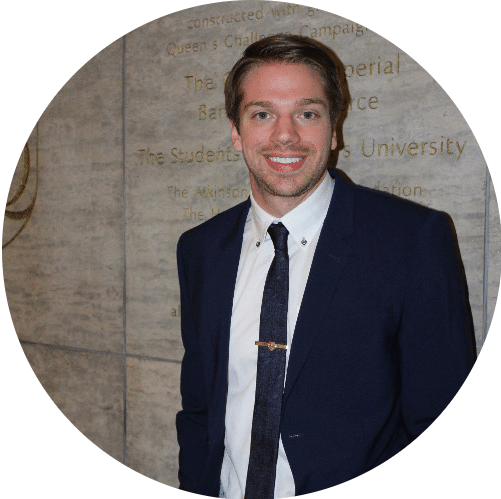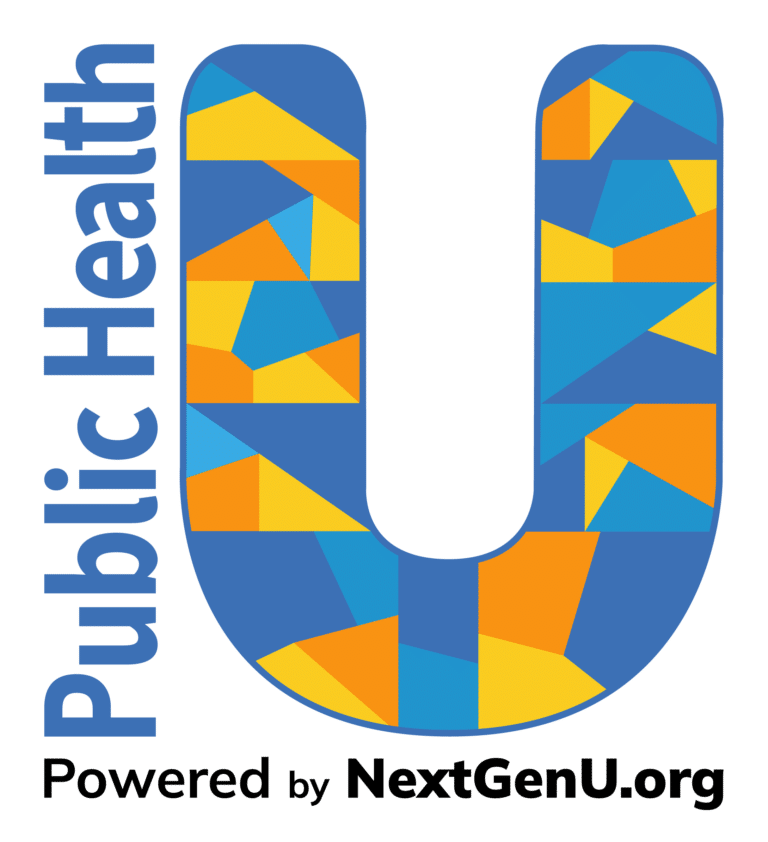Physician Training and
Addiction Education Initiative
About 10% of American adults report having experienced a substance use disorder, yet only one-quarter have received any form of treatment, and the availability of treatment may be even more compromised in less-resourced settings — but web-based openly-accessible training can help stem this tragedy globally.1 All physicians and their teams should have access to resources that can help them understand how substance use disorders present in their clinical settings, and how to compassionately assess, prevent, treat, and refer patients with these disorders. The US Surgeon General’s 2016 Report, Facing Addiction in America, called for better-integrating2 substance misuse and substance use disorder treatment into mainstream practice, and for correspondingly increased training for physicians and all other members of the healthcare team including undergraduates, graduates, postgraduates, and professionals.3 The Report urged nonprofit organizations and others to mobilize a robust public health response to substance use disorders, including integration of education related to substance misuse and substance abuse disorders into all health workers’ practices.4 The Report also encouraged public health models for addressing addiction and its causes, while indicating an increased need for healthcare providers to understand the basics of public health.5 Finally, the Report called for foci on evidence-based addiction treatment, and on preventing substance misuse and substance use disorders.6 In response, this Physician Training Initiative has focused and will continue to span its focus from clinical specialty training in addiction medicine to training in population-based preventive medicine and public health approaches, to systematically address the implications of substance misuse and substance use disorders for individuals, families, and communities.
Moreover, as an additional effort to facilitate the assimilation of addiction, mental health, and public health concepts by professional clinical workers, we initiated a professional development category. This targeted approach is particularly intended to decrease time- and workload-related barriers for busy clinical audiences. And further, regarding assimilation, all professional development courses, regardless of the topic, include at least one element that either increases exposure to addiction medicine content, aims to reduce stigma related to substance use disorders, or provides insights to improving the care of addictive diseases.
The Physician Training and Addiction Education Initiative offers education in substance misuse, substance use disorders, prevention, and related public health issues aimed at:
- Addictionologists (physicians who specialize in Addiction Medicine)
- Physician specialists including Psychiatrists, Preventionists, and Emergency Medicine physicians
- Primary Care Physicians and other physicians across specialties
- Physicians in training and other providers in training and practice
- Learning communities that train physicians and other healthcare providers
To address the needs of those experiencing a substance use disorder, this Addiction Medicine Physician Training Initiative aims to:
- Increase the number of physicians and other providers specializing in addiction medicine.
- Increase the number of physicians and other providers in all settings who are trained to competently and compassionately assess, prevent, and treat addictive diseases.
- Reduce stigma related to substance use disorders, so that healthcare providers are more willing and better able to assess, prevent, and treat addictive diseases.
- Help physicians and other healthcare providers understand that their personal substance use habits influence their patient care and the likelihood of assessing, preventing, and treating those with substance use disorders, and cause them to resultantly improve their personal and clinical substance-related practices.
We offer training directly and with our institutional partners, teaching physicians and other providers in training and in practice how to assess, prevent, treat, and refer patients with substance use disorders. Our approach includes creating materials that may be used in:
- Addiction Medicine fellowship programs or by physicians pursuing the practice pathway to sub-specializing in Addiction Medicine,
- Residency programs that lead to addiction specialization including psychiatric and preventive medicine residencies,
- Medical school (and other health provider training programs’) rotations and electives in primary care or psychiatry,
- Public health programs, since these materials are also part of the preventive medicine residency for physicians, and a public health lens is essential to effectively and efficiently prevent and treat substance use disorders,
- A concentration for the Masters in Public Health in addiction medicine and mental health, and
- Continuing professional development for practicing physicians and other providers.
The Physician Training and Addiction Education Initiative employs a scaffolding approach that engages physicians, trainees, medical students, and other providers throughout their training, threading each course with content related to substance use disorders. This approach reaches and is useful for every health practitioner, while also providing more-detailed content specifically for physicians (and others7) interested in specializing in addiction medicine.
The Physician Training and Addiction Education Initiative also engages in capacity building by providing:
- assistance in creating new programs
- faculty mentorship and
- direct training of physicians and other health providers/trainees through university partnerships.
For more information on institutional partnerships, contact us here.
Potential use cases, in the United States, include:
- Addiction Medicine Fellowships: 87 accredited programs8
- Psychiatry Residency Programs: about 300 programs with 5,535 active residents,9 with 98 specializing in addiction medicine, and 64 specializing in addiction psychiatry.
- Preventive Medicine Residencies: 71 accredited programs with 350 residents10
- Medical Schools: 192 medical schools with 29,746 students11 enrolled (2019).
- Public Health Programs: Over 1,400 public health programs12 with >30,000 degrees13 awarded in public health each year. Further, 42% of medical schools14 assist medical students in obtaining master’s level public health degrees, providing opportunities to reach many physicians and other healthcare providers with addictive disease training.
- Continuing education for professional development: There are 936,254 thousand active physicians15 in all specialties who can use these freely available materials to assist in their practice.
Addiction Research
Courses in Addiction Medicine and Mental Health
Concentration in Addiction and Mental Health
Curricular Threading in Addiction Medicine
- Annenberg Physician Training Program: Abstinence-Based Recovery from Addictive Disease
- Centers for Disease Control and Prevention
- Grand Challenges Canada
- New York Institute of Technology
- Pan American Health Organization / Virtual Campus of Public Health
- University of the Incarnate Word
- World Health Organization
- See 10 percent of US adults have drug use disorder at some point in their lives. (2015) US Department of Health and Human Services.
- Facts and Recommendations for Health Professionals and Health Care Systems. (n.d.) Substance Abuse and Mental Health Services Administration. https://addiction.surgeongeneral.gov/sites/default/files/fact-sheet-healthcare.pdf
- Facing Addiction in America: The Surgeon General’s Report on Alcohol, Drugs and Health. (2016) US Department of Health and Human Services. https://addiction.surgeongeneral.gov/sites/default/files/surgeon-generals-report.pdf
- Vision for the Future: A Public Health Approach. (2016) US Department of Health and Human Services. https://www.ncbi.nlm.nih.gov/books/NBK424861/
- A Public Health Model for Addressing Substance Misuse and Related Consequences. (2016) US Department of Health and Human Services. https://www.ncbi.nlm.nih.gov/books/NBK424860/box/ch1.box2/?report=objectonly
- Vision for the Future: A Public Health Approach. (2016)
- Beck, A., Page, C., Buche, J., Rittman, D., Gaiser, M. (2018) Mapping Supply of the U.S. Psychiatric Workforce. University of Michigan. https://www.behavioralhealthworkforce.org/wp-content/uploads/2019/01/Y3-FA1-P2-Psych-Mapping-Full-Report-with-Appendix.pdf
- Accredited Addiction Medicine Fellowships. (2021) American College of Academic Addiction Medicine. https://www.acaam.org/accredited-fellowships
- Report on Residents. (2021) Association of American Medical Colleges. https://www.aamc.org/data-reports/students-residents/interactive-data/report-residents/2021/table-b5-md-residents-race-ethnicity-and-specialty
- Residency Programs. (2018) American College of Preventive Medicine.
- Kalter, Lindsay. (2019) U.S. medical school enrollment rises 30%. Association of American Medical Colleges. https://www.aamc.org/news-insights/us-medical-school-enrollment-rises-30
- MPH Program Guide for 2020 and Beyond. (2021) MPH Program. https://www.mphprogram.com/
- Data USA: Public Health. (2019) Data USA. https://datausa.io/profile/cip/public-health
- Directory of MD-MPH Educational Opportunities. (2021) Association of American Medical Colleges.
- Physician Specialty Data Report. (2020) Association of American Medical Colleges. https://www.aamc.org/data-reports/workforce/interactive-data/active-physicians-sex-and-specialty-2019
- See 10 percent of US adults have drug use disorder at some point in their lives. (2015) US Department of Health and Human Services.
- Facts and Recommendations for Health Professionals and Health Care Systems. (n.d.) Substance Abuse and Mental Health Services Administration. Link Here
- Facing Addiction in America: The Surgeon General’s Report on Alcohol, Drugs and Health. (2016) US Department of Health and Human Services. Link Here
- Vision for the Future: A Public Health Approach. (2016) US Department of Health and Human Services. Link Here
- A Public Health Model for Addressing Substance Misuse and Related Consequences. (2016) US Department of Health and Human Services. Link Here
- Vision for the Future: A Public Health Approach. (2016)
- Beck, A., Page, C., Buche, J., Rittman, D., Gaiser, M. (2018) Mapping Supply of the U.S. Psychiatric Workforce. University of Michigan. Link Here
- Accredited Addiction Medicine Fellowships. (2021) American College of Academic Addiction Medicine. Link Here
- Report on Residents. (2021) Association of American Medical Colleges. Link Here
- Residency Programs. (2018) American College of Preventive Medicine.
- Kalter, Lindsay. (2019) U.S. medical school enrollment rises 30%. Association of American Medical Colleges. Link Here
- MPH Program Guide for 2020 and Beyond. (2021) MPH Program. Link Here
- Data USA: Public Health. (2019) Data USA. Link Here
- Directory of MD-MPH Educational Opportunities. (2021) Association of American Medical Colleges.
- Physician Specialty Data Report. (2020) Association of American Medical Colleges. Link Here




